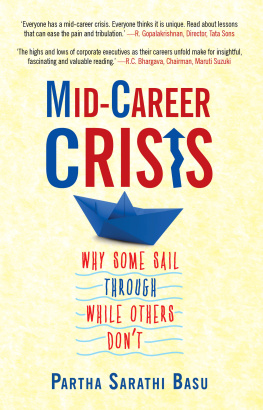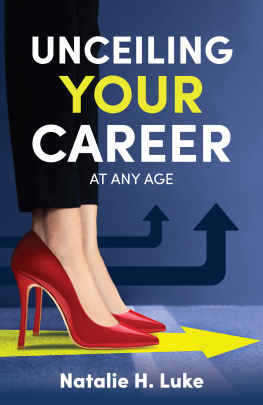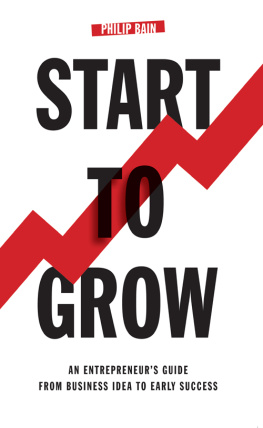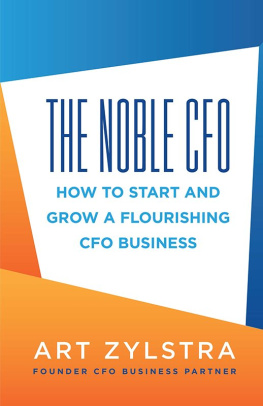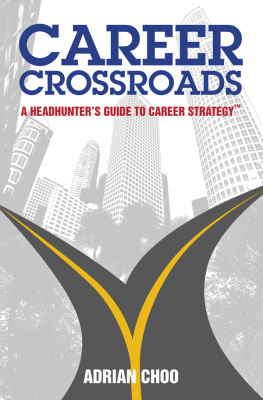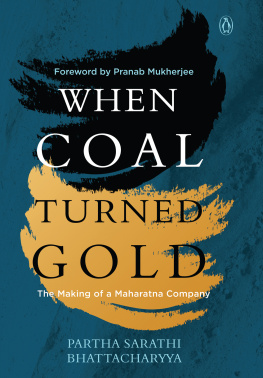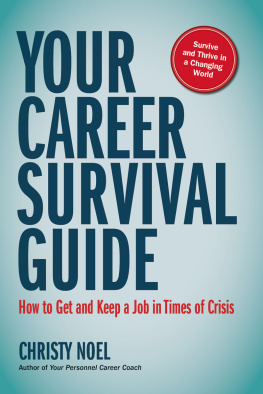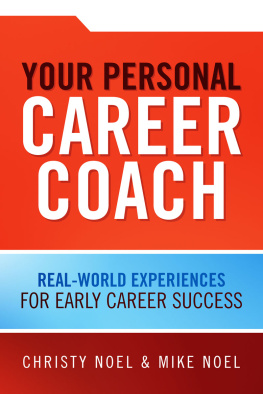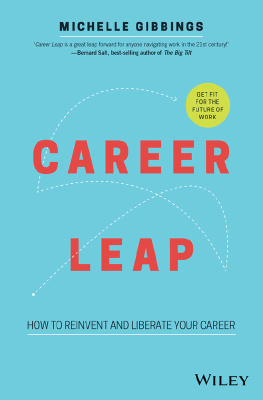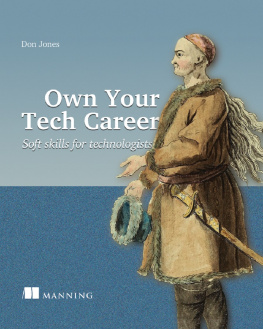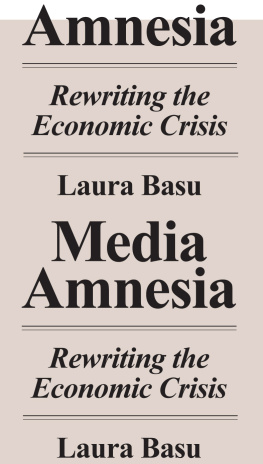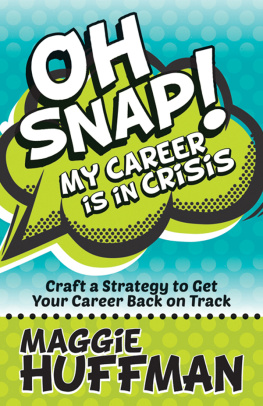To Sayanti,
for being considerate and supportive during my MCC
Contents

Amit Jain, Managing Director North & West Europe, Decorative Paints, AkzoNobel NV
Brijesh Mehra, Country Executive and Coverage Head India, The Royal Bank of Scotland NV
T. Krishnakumar (K.K.), Region Director South Asia, Bottling Investments Group, The Coca-Cola Company
Mohit Lal, Managing Director, Pernod Ricard India Private Limited
Murali Sivaraman, Global CEO, Domestic Appliances Business, Koninklijke Philips NV
Pratip Kar, former Executive Director of the Securities and Exchange Board of India
Ranjan Malik, Partner and Director, Erehwon Innovation Consulting
Ravi Venkatesan, former Chairman, Microsoft India
Satyakam Basu, Chairman, Samshi Group
Vipul S. Shah, President, CEO and Chairman, Dow India

W hy do only a few people reach the top while others fall behind after a good progression in the first few years of their careers? Why do people progress at a different pace in their mid-career when, during the first few years, most of them moved at the same speed? Are professionals who continue to grow in their careers different from the rest? Do they possess superior knowledge, sharper leadership skills or better educational qualifications? If thats the case, why isnt the top of the organizational pyramid always occupied by people who excelled in their studies? Or is it sheer luck that helps some sail through at work while others start experiencing a plateau as they reach their mid-career?
Many such questions bothered me once I began my career. I looked to my seniors and peers for help, but I was not able to find the right answer or understand the core issue until I reached my mid-career and started losing out to my colleagues.
It was a stage in my career and my life when I felt I was going through a sense of Misery (M); I was Confused (C); and that caused many Changes (C) in me. Thus I learnt the meaning of Mid-career Crisis (MCC) the hard way.
I am talking about a time when I was promoted as the planner for the India market of a global fast-moving consumer goods company (FMCG) company. I had been in the corporate world for about thirteen years and had spent time in three companies, performing multiple functions in different industries. Thus, I was a professional with a multi-industry, multi-functional experience. In my mind, I was all set to leap ahead in my career.
When I compared myself to my friends and colleagues, I could safely state that while I might not be ahead of all my contemporaries, no one could tell me I was a laggard and had not progressed well in my career. In my own eyes, I was doing well.
In terms of my personal life, I had nothing much to complain about. I had an understanding, friendly wife and two lovely little children. Touch wood, I had a happy family.
Then why was I so unhappy? Why did I feel miserable all the time?
It seemed as if nothing was going right for me. I was confused and irritated. My life was nothing but chaotic and I was convinced that I was in a big mess. I spent many hours introspecting and spoke to my friends, seniors, peers and also my juniors. Against my firm beliefs, I visited an astrologer, hoping that he could tell me about my future.
Everyone heard me out; they had no option but to listen to me since I was adamant to tell them my story. I wanted to convey how unhappy I was with my life and career. In the end, almost everyone sang the same tune and reassured me that all will be well. They said life was not always a bed of roses and I needed to be ready for the thorns as well.
Though their words provided me temporary solace, in reality, nothing changed. I continued to feel what I had felt before speaking to them. If anything, I was more miserable. It got worse with every passing day. But where was the problem? What else was I looking for? Frankly, I did not have an answer and nor did the wise men, women or the astrologer whom I had met in those few weeks.
However, I was determined not to leave my suffering unattended. During our conversations, my seniors, peers and juniors told me interesting events and stories. I realized that I was not alone and almost everyone went through this phase. But while some people came out and kept growing, others failed to sail through. These stories gave me many insights into how winners conducted themselves at this stage of their careers. These stories shattered many myths that I used to believe in. Identifying those myths and understanding their effects helped me overcome my MCC.
As I started penning down my thoughts about mid-career crisis (MCC), I wondered whose story this was. Was it mine, yours or theirs? Over time, I realized that it was not the story of an individual, and it was actually our story.
I must start this book by explaining why I think it is our story.
This book is about each of us who has passed through this phase, is currently going through it or will go through it some day. It is about the past, the present and the future. In one life or one career, it is impossible to experience everything that I will narrate in the following pages. I sincerely hope no single person has to experience all that I will be talking about. If all that happens to one individual, I am sure he or she will go mad, lose their job or lose the zeal to overcome the MCC.
We all grow up hearing stories from our parents and grandparents. To date, I remember many of those stories fondly. I believe that people dont remember the wisdom that management or self-help books shower on us. If they remember something, it is the stories they can learn from. Thus, each topic that I have covered in this book has a related story.
All these stories are near approximations of real-life storiessome experienced by me, some by my colleagues and friends, and some told to me. But in my mind, I tried to experience all of them and will present them to you at times as a protagonist, at times as a consultant, at times as the supervisor, at times as a peer, at times as a subordinate and at times as just a listener. You will find many characters who are familiar to you. If you can relate to them, put a face to them and learn from their experiences, I will be happy to think that my efforts were worth the while.
Dont think that if you read this book, all your MCC problems will be resolved. This book is not a readymade recipe to overcome MCC. The idea is to let you know the concerns, illustrate them through a story and make you aware so that you dont repeat the same mistakes that others have made during their MCC.
You must be wondering who I am to write a book on MCC and why you should read it when I am not a professor, a thought leader, a professional coach, an HR practitioner, or someone who holds life-changing public talks. Your apprehension is justified. In fact, you should be clear before moving forward as you will invest some part of your life in reading this book.
My answer is that I am just another professional who was a victim of MCC and, hence, I probably know what it means.
Before writing the book, I looked around. I could not find a single book on the subject that shares life experiences, and so I decided to put one together. I wonder if I was able to address all the topics that bother us during our MCC. Irrespective of the answer, I am sure that my effort has been honest. During your MCC, you may encounter some other issues. I will be glad if you shared with me how you dealt with them so that I can learn and improve.
Next page
